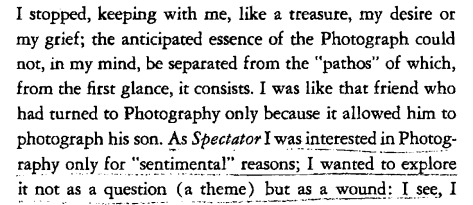skyuntuning
247 posts
Don't wanna be here? Send us removal request.
Text
"In the work of the most important contemporary representative of German hermetic poetry, Paul Celan, the experiential content of the hermetic was inverted. His poetry is permeated by the shame of an art in the face of suffering that escapes both experience and sublimation. Celan's poems want to speak of the most extreme horror through silence. Their truth content itself becomes negative. They imitate a language beneath the helpless language of human beings, indeed beneath all organic language: It is that of the dead speaking of stones and stars. The last rudiments of the organic are liquidated; what Benjamin noted in Baudelaire, that his poetry is without aura, comes into its own in Celan's work. The infinite discretion with which his radicalism proceeds compounds his force. The language of the lifeless becomes the last possible comfort for a death that is deprived of all meaning. The passage into the inorganic is to be followed not only in thematic motifs; rather, the trajectory from horror to silence is to be reconstructed in the hermetic works. Distantly analogous to Kafka's treatment of expressionist painting, Celan transposes into linguistic processes the increasing abstraction of landscape, progressively approximating it to the inorganic. By appearing as art, that which insists that it is realistic injects meaning into reality, which such art is pledged to copy without illusion. In the face of reality this is a priori ideological. Today the impossibility of realism is not to be concluded on inner-aesthetic grounds but equally on the basis of the historical constellation of art and reality. Today the primacy of the object and aesthetic realism are almost absolutely opposed to each other, and indeed when measured by the standard of realism: Beckett is more realistic than the socialist realists who counterfeit reality by their very principle. If they took reality seriously enough they would eventually realize what Lukács condemned when during the days of his imprisonment in Romania he is reported to have said that he had finally realized that Kafka was a realist writer.”
—Theodor Adorno, “Paralipomena,” Aesthetic Theory (1970)
75 notes
·
View notes
Text

Carlo Michelstaedter, Persuasion and Rhetoric
205 notes
·
View notes
Photo

Carlo Michelstaedter, Persuasion and Rhetoric
361 notes
·
View notes
Text


Alphonso Lingis on trust. (From an interview.)
10 notes
·
View notes
Photo

paul celan, microliths they are, little stones: posthumous prose, translated by pierre joris, contra mundum press, 2020.
82 notes
·
View notes
Photo

Remedios Varo, No hay ningún cadáver en el armario, 1956.
Lápiz/Papel Mantequilla.
18 notes
·
View notes
Text
"It is in playing and only in playing that the individual child or adult is able to be creative and to use the whole personality, and it is only in being creative that the individual discovers the self."
– D. W. Winicott, Playing and Reality
78 notes
·
View notes
Text










Covers of Paideuma, founded 1971 as a journal of Ezra Pound scholarship, now a general journal for contemporary poetry
Centre for Poetry and Poetics, University of Maine
69 notes
·
View notes
Text



"I danced in 'Cafe Muller' myself. We all have our eyes closed. When we did a reprise, I couldn't get the feeling back, a feeling that mattered so much to me. All of a sudden I noticed that it makes a big difference, behind closed eyelids, whether I look down, or like this (points the finger horizontally forward). That made all the difference! The right feeling was there immediately. Unbelievable how crucial that is. The tiniest detail matters. It's all a language that you can learn to read." /Pina Bausch, from Pina (2001), Wim Wenders
19 notes
·
View notes
Text
“If we never write anything save what is already understood, the field of understanding will never be extended. One demands the right, now and again, to write for a few people with special interests and whose curiosity reaches into greater detail.”
—Ezra Pound, Canto XCVI
8 notes
·
View notes









